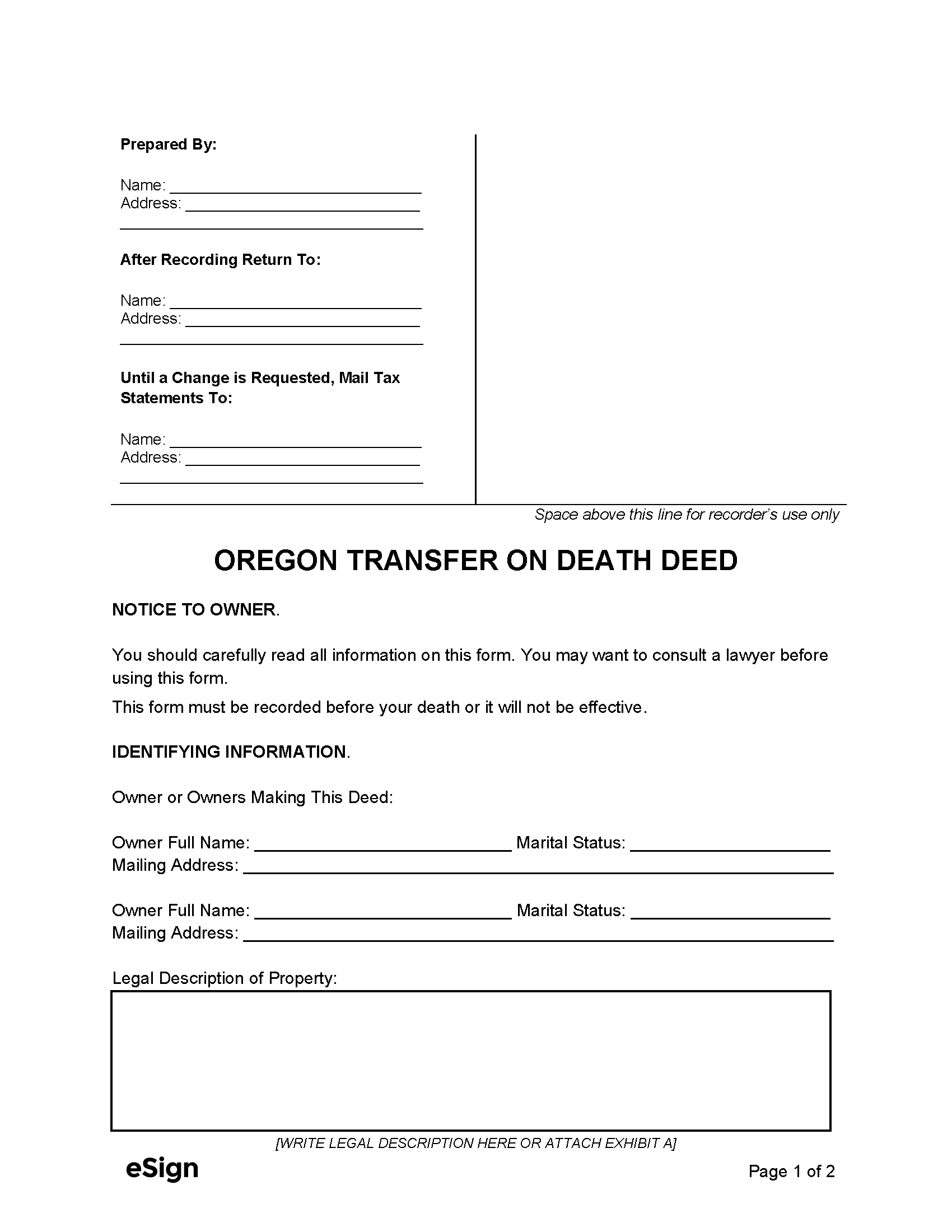Instrument Revoking of Transfer on Death Deed – Cancels a transfer on death deed.
Recording and Resources
Formatting
- Paper: 8.5″ x 14″ max.
- Font: 10pt min.[1]
Signing and Recording
- Signing Requirements: Notarization[2]
- Where to Record: County Clerk[3]
- Recording fees: $5 per page (as of this writing)[4]
Resources
TODD Waiting Period
Under Oregon law, real property transferred by a transfer on death deed remains subject to creditor claims for 18 months after the decedent’s death.[5]
